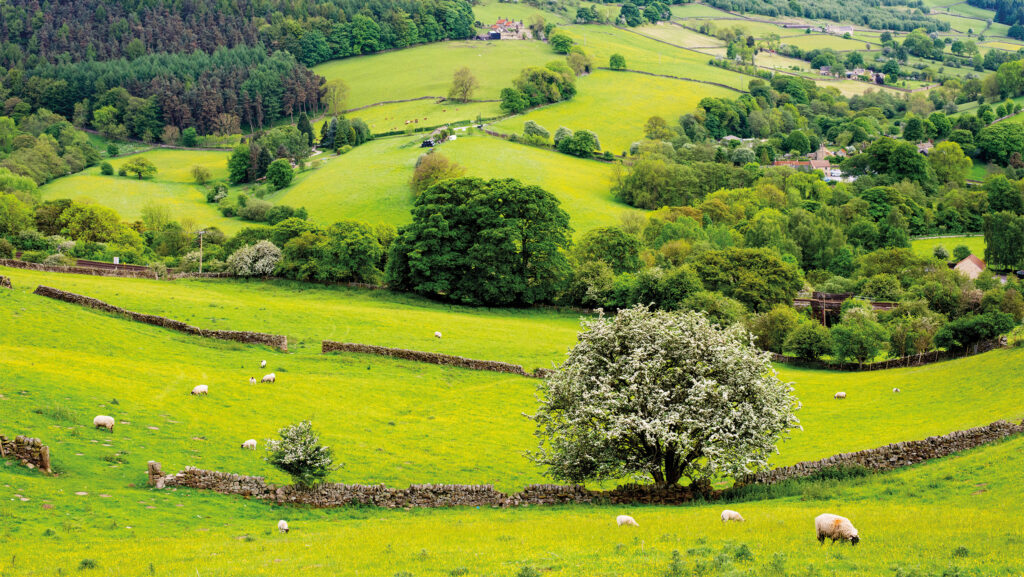Farm and land sales: Common issues that delay and complicate
 © Adobe Stock
© Adobe Stock The aim when selling a farm or land is not only to secure a reliable buyer but also to minimise the time between accepting an offer and exchange of contracts.
This is the point at which the buyer and seller are then locked in to the deal, with completion often being some time in the future.
This means ensuring that sale plans for the property are accurate and checking that these match the title deeds.
This is the advice from Marcus Thorpe, head of the agricultural and rural property team at law firm Trethowans.
See also: Stamp duty and farmland – how it works and what to expect
Occupation
The informal occupation by third parties of land or buildings is a common complication, says Marcus, with such arrangements often made on a handshake and then running for many years.
Documenting these, or terminating arrangements before marketing begins, will lead to fewer questions and delays.
Planning
Any planning-related issues should also be sorted out, says Marcus.
He gives the example of a farm for sale where an agricultural occupancy clause had been removed some years earlier from one property.
This was done on condition that it was transferred to another on the same farm.
The transfer was never carried out and so had to be dealt with before exchange, which caused delay in that instance.
It is not uncommon for planning conditions to have been breached by alternative uses of land or buildings.
Also, permissions are sometimes granted which mean that houses or other accommodation cannot be split from a certain area of land with which they are associated.
The more time that passes, the more likely such conditions are forgotten about.
Pre-sale enquiries are likely to turn up such issues so they are best investigated in advance of marketing.
However, once planning questions are raised, the wheels turn very slowly in some local authorities, so seek advice first on planning matters, Marcus suggests.
It may be that an alternative solution is preferable, such as legal indemnity insurance at a one-off cost for the seller, which a buyer might be happy with.
Restrictive covenants
The use of land can be restricted by covenants – one of the most common is a restriction to agricultural use only – something which both sellers and buyers need to be aware of.
In order to avoid problems, such issues need to be unearthed at an early stage, says Marcus. Ideally, the agent’s brochure should include details of land that has a restricted use.
Drainage
Foul drainage, most commonly in the form of private sewerage installations and septic tanks, is another frequent problem area.
“Some of these installations date from Victorian times and the investment hasn’t been made in them, so they are not compliant with the regulations.
“However, where this is the case, selling agents often cover this off in the sale documentation, stating in the brochure that any offer to buy must take account of the current system.
“If a buyer is getting a mortgage, they are under a duty to inform lenders and potentially put aside additional money to update the system after purchase.”
Private water
Private supplies should be tested to make sure they are of drinking quality and the treatment plant checked to ensure it is working efficiently.
On one farm Marcus dealt with, the private water supply failed the potability test because water was passing too quickly through treatment equipment.
This meant the filter could not remove the nitrates to an acceptable level.
This had to be resolved prior to completion.
Water abstraction rights
Abstraction rights can be transferred from a seller to a new landowner but where those rights cover land that is lotted and sold to different buyers, a licence cannot be split.
This means arrangements have to be made between the person taking on ownership of the rights and the buyers of other lots, so that the water is shared.
This can be a complex calculation and needs careful thought in advance of marketing, says Marcus.
Access and boundaries
Shared access is a common problem area, causing dispute not only in terms of who has the right to use an access or track but also for what purpose and by what means.
For example, some rights are for agricultural use only but as time passes, other uses often develop.
This may be fine as long as there is no dispute, but the sale of farm cottages or parcels of land can lead to problems for existing occupiers and for new owners unless rights are clearly set out and understood.
In some cases, this may mean granting rights which do not currently exist.
“For example, we handled an issue where a house had been built some time ago in a rural location, the original owner never had a car and the access right was by foot over a farm track, which was also a public footpath, which was fine for that owner.
“There had never been a vehicular right of way obtained over the track and in this case we acted for the owner of the track who granted an easement for vehicular access to the house,” says Marcus.
“However, should the track owner have refused to do this, it would have made the house almost impossible to sell.”
Boundary issues are also common and need resolving before selling a farm or land.
“Sellers are under an obligation to be truthful in answering pre-contract enquiries and these will include a direct question about any former or ongoing disputes, so be sure to be honest about those.”
Buyer beware
Anyone considering buying a farm should get a lawyer familiar with agricultural land transactions to visit the holding to check it out for any potential issues, advises Marcus.
These sometimes come to light only when the lawyer inspects the situation on the ground.
